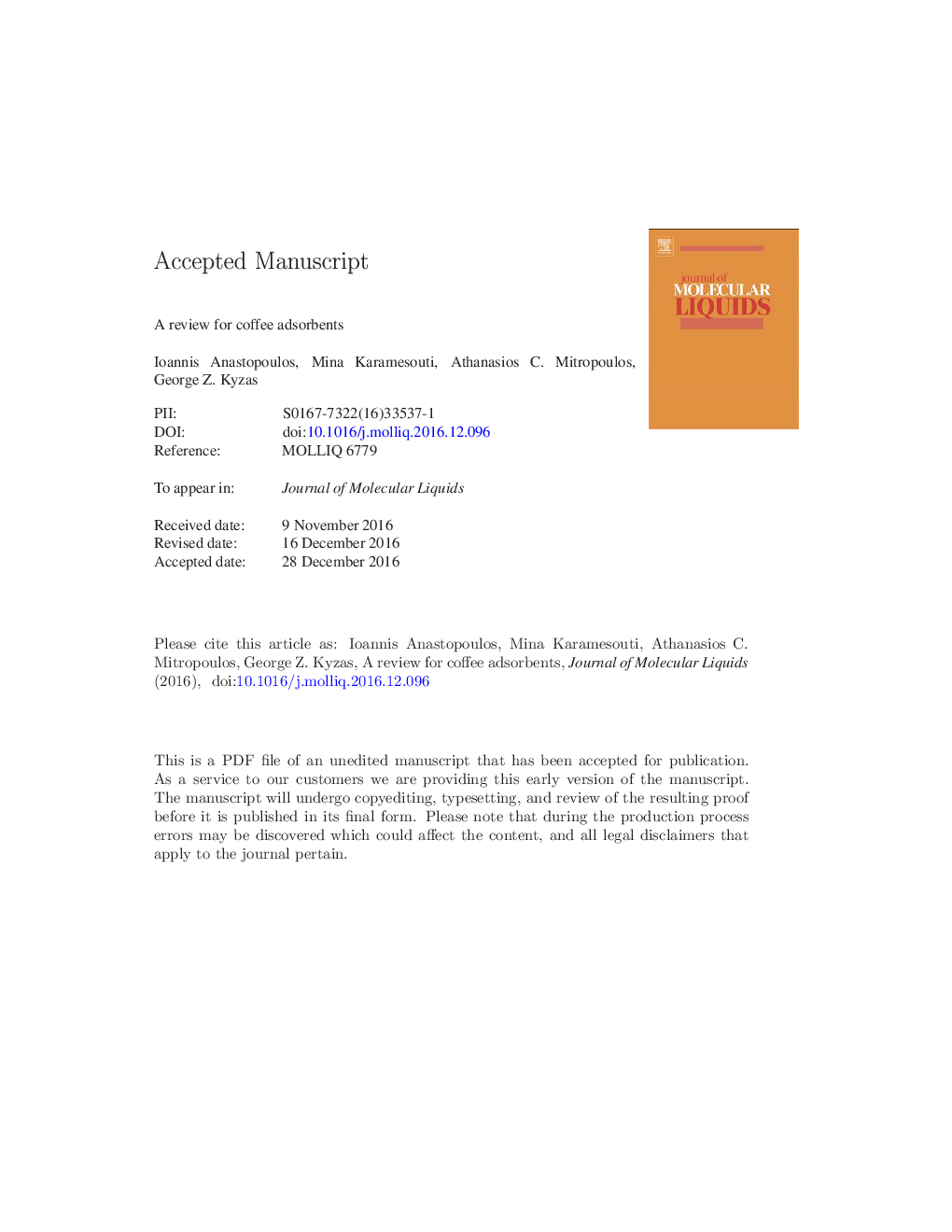| Article ID | Journal | Published Year | Pages | File Type |
|---|---|---|---|---|
| 5409115 | Journal of Molecular Liquids | 2017 | 40 Pages |
Abstract
This review examines the performance of new highly promising materials in water purification industry. Low-cost and effective industrial wastes may have ample applications in water decontamination procedures, the most popular of which is the biosorption, a metabolically passive process. Coffee residues are by-products produced in considerable quantities worldwide. Recently available researches show an expanding applicability of coffee by-products in the wastewater treatment. The food industry, the agriculture and aquaculture, the medicine and the cosmetics are indicatively some of the industries that discharge significant quantities of toxic substances through their wastewaters. Dyes and heavy metals are among the most typical chemicals of aforementioned wastewaters, with various harmful effects on living organisms. The current work collects information from recently published researches discussing the potential of raw or modified coffee residues for wastewater decontamination. Important adsorption stages such as (i) equilibrium (isotherms), (ii) kinetic, and (iii) desorption are also compared. Moreover, crucial factors affecting the adsorption process, such as the effect of solution pH, contact time, temperature and adsorbent's dose, are also mentioned.
Related Topics
Physical Sciences and Engineering
Chemistry
Physical and Theoretical Chemistry
Authors
Ioannis Anastopoulos, Mina Karamesouti, Athanasios C. Mitropoulos, George Z. Kyzas,
